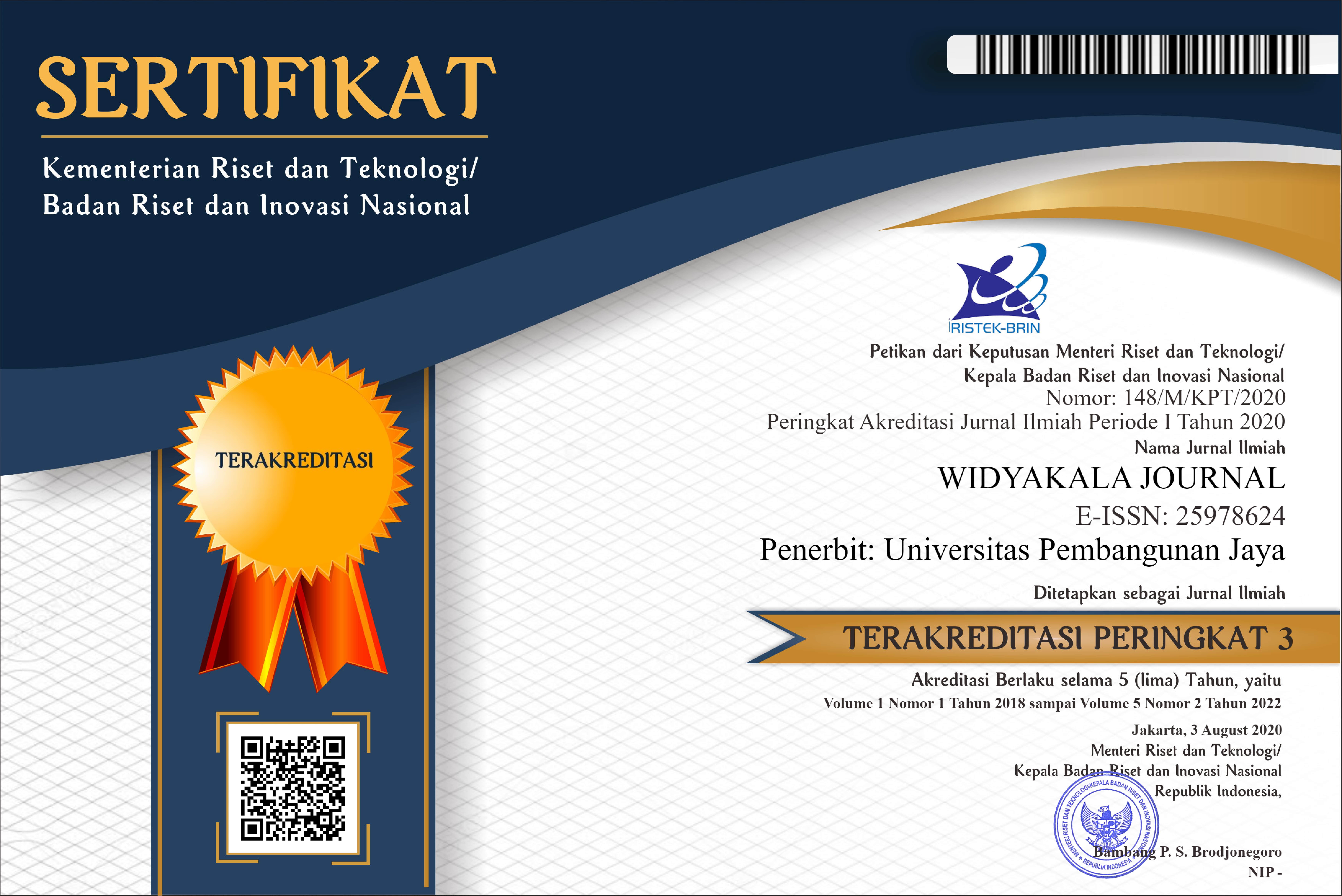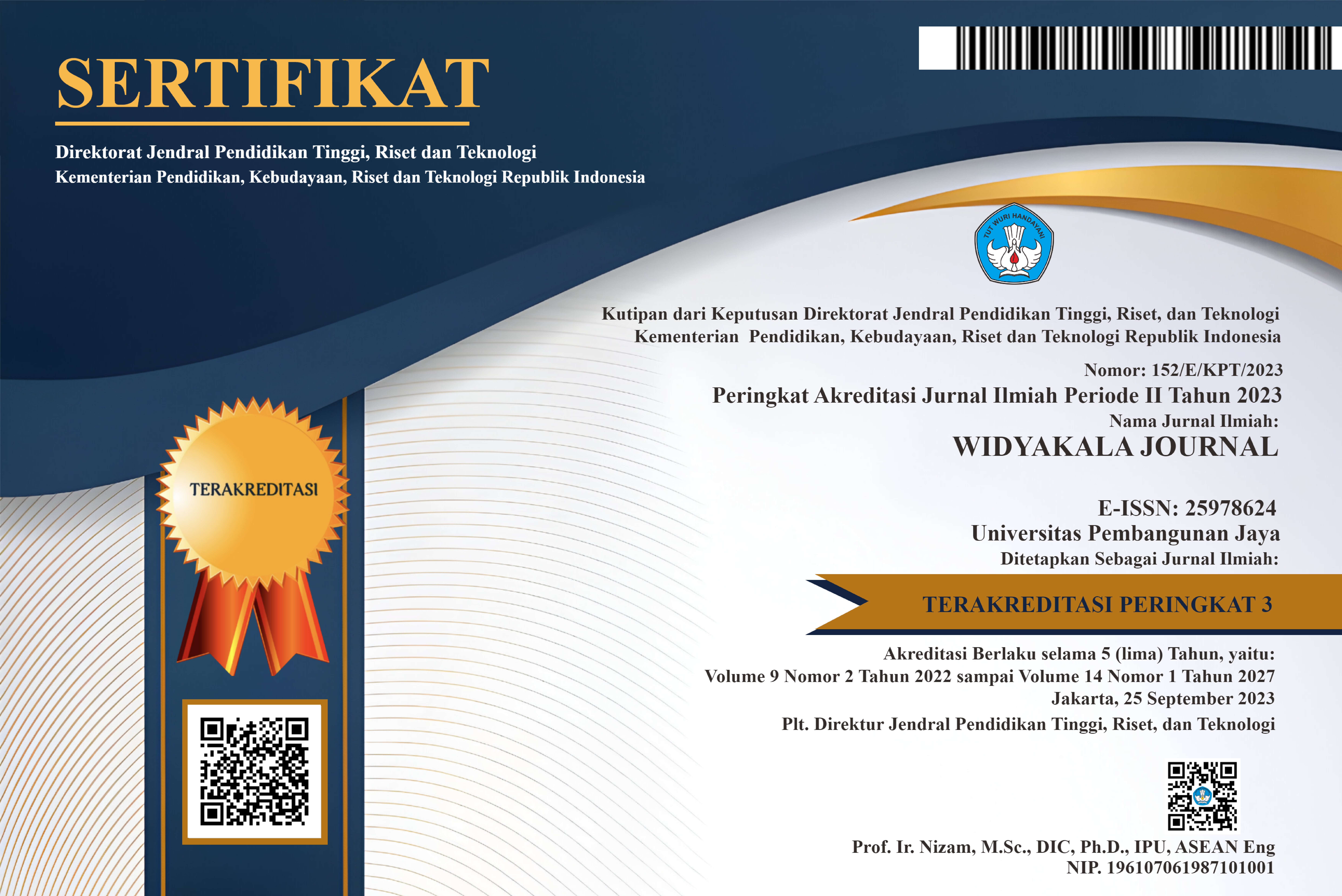Updated, March 2025
Understanding How Green Intellectual Capital Influences Earnings Management: Insights from a Qualitative Study
Abstract
Keywords
Full Text:
PDFReferences
Chen, Y. S. (2008). The positive effect of green intellectual Enomoto, M., Kimura, F., & Yamaguchi, T. (2018). Accrual-based and real earnings management: An international comparison for investor protection. Journal of Contemporary Accounting & Economics, 14(1), 1–18.https://doi.org/10.1016/j.jcae.2017.12.005
Chen, Y., & Liu, W. (2021). The impact of environmental values on ethical financial decision-making: Evidence from green finance initiatives. Journal of Business Ethics, 173(3), 613–629. https://doi.org/10.1007/s10551-021-04790-9
Freeman, R. E. (1984). Strategic Management: A Stakeholder Approach. Pitman.
Healy, P. M., & Wahlen, J. M. (1999). A review of the earnings management literature and its implications for standard setting. Accounting Horizons, 13(4), 365–383.
Huang, H. H., & Kung, F. H. (2021). Do socially responsible firms manage earnings less? Evidence from corporate social responsibility ratings. Journal of Business Ethics, 171(3), 627–646. https://doi.org/10.1007/s10551-020-04413-3
Hussain, N., Rigoni, U., & Orij, R. P. (2018). Corporate governance and sustainability performance: Analysis of triple bottom line performance. Journal of Business Ethics, 149(2), 411–432. https://doi.org/10.1007/s10551-016-3099-5
Laskar, N., & Maji, S. G. (2021). Stakeholder engagement and corporate environmental disclosure: The moderating role of financial performance. Social Responsibility Journal, 17(6), 857–876. https://doi.org/10.1108/SRJ-09-2019-0300
Malik, M., Ali, A., & Ishfaq, R. (2020). Corporate governance and environmental performance: Evidence from an emerging market. Journal of Cleaner Production, 260, 121137. https://doi.org/10.1016/j.jclepro.2020.121137
Nguyen, H., & Tran, H. (2021). Green intellectual capital and firm value: The mediating role of environmental performance. Journal of Cleaner Production, 289, 125603. https://doi.org/10.1016/j.jclepro.2020.12560
Nguyen, M. D., & Phan, T. H. (2022). Environmental training and ethical reporting: Evidence from Vietnamese manufacturing firms. Sustainability, 14(4), 2127. https://doi.org/10.3390/su14042127
Puspitasari, Y., & Wahyuni, S. (2022). Corporate governance and earnings management: A study of manufacturing firms in Indonesia. Journal of Applied Accounting Research, 23(1), 34-49.
Sassen, R., Hinze, A.-K., & Hardeck, I. (2022). Corporate social responsibility and earnings quality: Evidence from sustainability rankings. Journal of Business Ethics, 180, 707–724. https://doi.org/10.1007/s10551-021-04831-3
Setiawan, D., Handayani, S. R., & Harymawan, I. (2022). Environmental performance, media visibility, and earnings management: Evidence from an emerging economy. Environmental Science and Pollution Research, 29, 67942–67954.https://doi.org/10.1007/s11356-022-20297-1
Simnett, R., & Huggins, A. L. (2018). Integrated reporting and assurance: Where can research add value? Sustainability Accounting, Management and Policy Journal, 9(1), 2–28. https://doi.org/10.1108/SAMPJ-01-2018-0004
Suchman, M. C. (1995). Managing legitimacy: Strategic and institutional approaches. Academy of Management Review, 20(3), 571–610.
Ullah, M., Molla, R. I., & Rahman, M. M. (2021). Impact of green intellectual capital on sustainability performance. Sustainability, 13(3), 1464. https://doi.org/10.3390/su13031464
Uyar, A., Kılıç, M., & Gungormus, A. H. (2020). Integrated reporting and earnings management: Evidence from emerging markets. Sustainability Accounting, Management and Policy Journal, 11(3), 597–622. https://doi.org/10.1108/SAMPJ-09-2018-0254
Vaara, E., & Lamberg, J. A. (2016). Taking history seriously: Three historical approaches to strategy research. Academy of Management Review, 41(4), 633–657. https://doi.org/10.5465/amr.2014.0172
Wang, Y., Wang, L., & Wang, J. (2019). Green intellectual capital and firm performance: Evidence from China. Sustainability, 11(19), 5408.
Yu, E. P., & Zhao, R. (2020). Greenwashing in corporate environmental disclosure: Evidence from China. Accounting & Finance, 60(2), 219–246. https://doi.org/10.1111/acfi.12372capital on competitive advantages of firms. Journal of Business Ethics, 77(3), 271-286.
Yusliza, M. Y., Osibanjo, O. A., & Ahmad, N. B. U. (2020). Conceptualising the role of green human resource management in environmentally sustainable organisations. International Journal of Business and Society, 21(2), 487–500.
Yusliza, M. Y., Ramayah, T., & Ibrahim, H. (2020). HR roles and green intellectual capital: A conceptual linkage towards sustainable performance. International Journal of Productivity and Performance Management, 69(3), 564-586.
DOI: https://doi.org/10.36262/widyakala.v12i2.1263
Refbacks
- There are currently no refbacks.
Copyright (c) 2025 WIDYAKALA JOURNAL : JOURNAL OF PEMBANGUNAN JAYA UNIVERSITY

This work is licensed under a Creative Commons Attribution-ShareAlike 4.0 International License.
Redaksi Jurnal Widyakala
Lembaga Penelitian dan Pengabdian Kepada Masyarakat (LP2M)
Universitas Pembangunan Jaya
Jalan Cendrawasih Raya Blok B7/P, Sawah Baru, Ciputat, 15413
Telp : 021-7455555 ext 1311
widyakala.journal@upj.ac.id


















